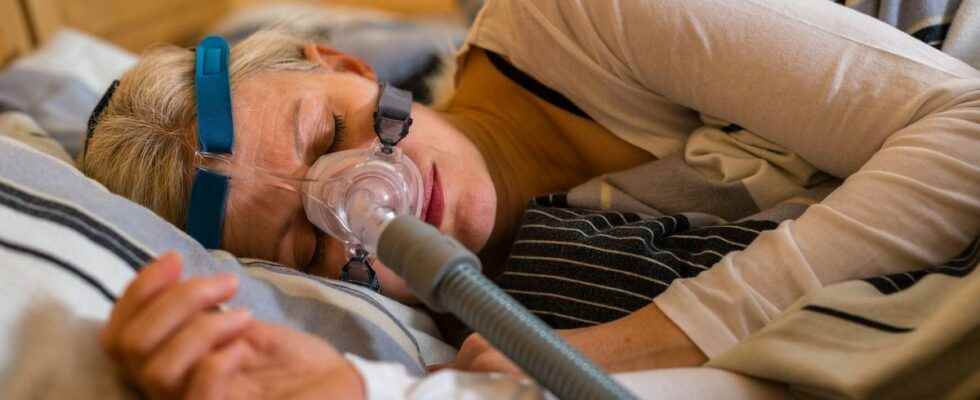Published on
Updated
Reading 2 mins.
Germs in tap water could contaminate the devices of people with sleep apnea, according to a new investigation. So how do you avoid these infections? The answer of Dr. Ellaffi, pulmonologist and allergist.
This is bad news for anyone with sleep apnea. According to a new study conducted by the US health authorities (Centers for Disease Control and Prevention – CDC), tap water could lead to infections when used in CPAP machines with humidification.
“Pathogens can be inhaled”
As part of this study, the CDC evaluated the use of tap water in people using CPAP machines, dedicated to the treatment of sleep apnea.
A third of the participants did not know that tap water could contain bacteria and other pathogens; and more than half thought tap water could “disinfect safely“respiratory devices.
A drama according to the CDC.
“With a CPAP machine for example, pathogens can be inhaled which can lead to infection“, tells Healthline Dr. Amesh Adalja, an infectious disease expert and principal investigator at the Johns Hopkins University Center for Health security.
He adds that the symptoms of the infection “may be similar to pneumonia“, such as a cough, difficulty breathing, severe shortness of breath or chest pain.
Worse still, once inhaled, certain pathogens can remain in the lungs and cause, over time, more dangerous infections.
The most fragile can get sick
If all people with sleep apnea do not necessarily fall ill after using tap water, the most fragile can however be affected (elderly people or those with chronic illnesses).
Therefore, the Centers for Disease Control and Prevention recommends people with sleep apnea disorders to “sterilize” water before use. Ventilation devices should also be cleaned regularly.
Recommendations, validated by our expert.
“Tap water may be treated, but it never contains zero germs”, warns Dr. Ellaffi, pulmonologist and allergist specializing in sleep disorders. The good news is that on the contrary United States,”We have, in France, trained providers who explain to patients with sleep apnea the different hygiene measures to apply. It is recommended, for example, to buy bottled water or boil the tap water before using it. You should also remember to empty and clean the humidifier every day to avoid the appearance of bacteria and mold“.
If bacteria in tap water can cause “all infectious stages of the respiratory tree“, the specialist nevertheless wants to be reassuring: “The risk of infection remains relatively low.”
